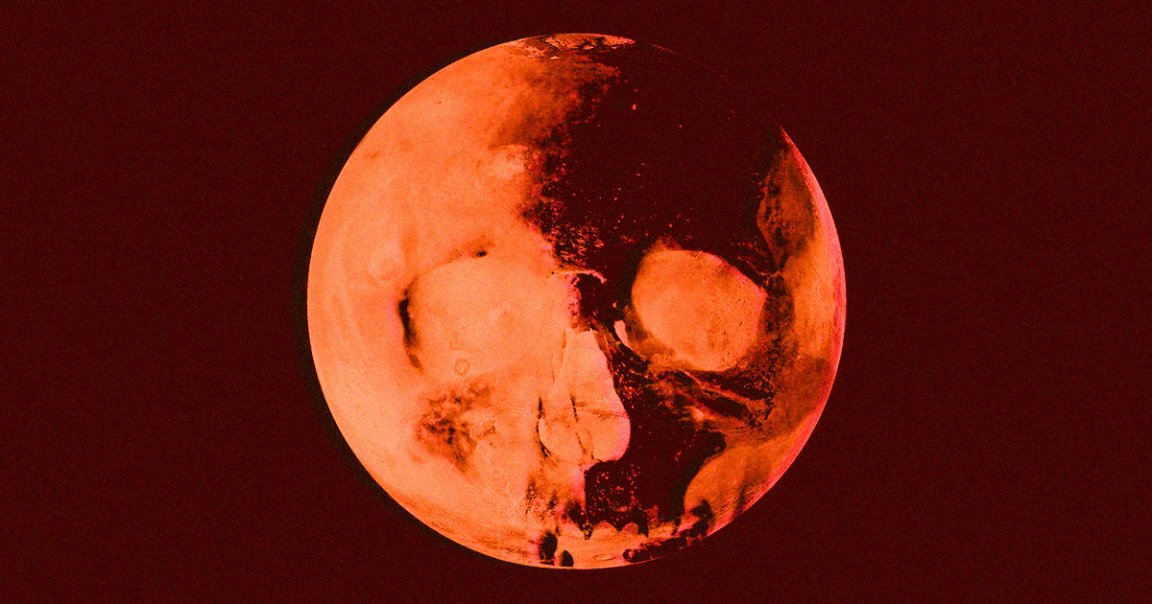
Martian Pioneers
Scientists have set their sights on getting humans to Mars — and maybe even terraforming the Red Planet. SpaceX CEO Elon Musk’s goal is to send humans to Mars by 2024, and NASA plans to launch astronauts there after the Moon.
But despite the resources being funneled into technology to transport us to the Red Planet, we don’t yet understand the evolutionary implications the move will have on the human body. In a new interview with Inverse, evolutionary biologist and Rice University professor Scott Solomon thinks it’s worth asking what will happen to Mars colonists in the long term — as mutations start to cascade through the gene pool.
“What’s interesting to me as an evolutionary biologist is thinking about, what if we’re actually successful?” he asked the site. “I don’t think there has been nearly as much discussion about what would become of the people that are living in these colonies generations later.”
Genetic Jumble
In January 2018, Solomon gave a TEDx talk in Houston that outlined the evolutionary changes the first Martian settlers will likely experience. After about two generations, he thinks their bones will strengthen, they’ll need glasses for nearsightedness, their immune systems will be null, pregnancy and childbirth will be significantly more perilous, and the exposure to radiation—more than 5,000 times the amount we’re exposed to on Earth during a normal lifetime, Solomon says—could lead to an influx of cancer.
Most importantly, though? Solomon argues that Martians should stop reproducing with Earth-humans.
“Evolution is faster or slower depending on how much of an advantage there is to having a certain mutation,” Solomon says in the video. So, if humans on Mars gain a mutation that raises their survival advantage, that’s a good thing — but Solomon says they’ll be “passing those genes on at a much higher rate than they otherwise would have.”

Pop Cap
Contact with Earthlings could even be deadly for Martians — and vice versa. Mars doesn’t have any microorganisms to carry disease, and so if cross contamination between Earth and Mars is controlled, Solomon explains that all infectious disease could be eliminated — meaning there should be no intimate connection between the two groups.
But all mutation isn’t bad. Every new baby on Earth is born with 60 new mutations, a number which Solomon says will jump to the thousands on Mars. By mutating, humans on Mars would gain critical, life-saving benefits to cope with the brutal planet: a different skin tone to protect from radiation, less reliance on oxygen to adapt to the thin atmosphere, denser bones to counteract calcium loss during pregnancy.
CRISPR Drawer
Solomon even suggests that we could use CRISPR to more purposefully design these helpful mutations.
Maybe it’s sadly ironic. If Earth becomes uninhabitable and we look to other planets for a new home, the only way to ensure the long term survival of the human species might be to become a completely different species.
“If we eventually come to inhabit multiple worlds scattered across the gallery, over time, we may see the evolution of a plethora of new human species,” Solomon said. “We should recognize that here could be unintended consequences for who our decedents become many generations from now.”
READ MORE: Near-Sighted Kids of Martian Colonists Could Find Sex With Earth-Humans Deadly [Inverse]
Read more about getting humans to Mars: Buzz Aldrin Calls for “Great Migration of Humankind to Mars”